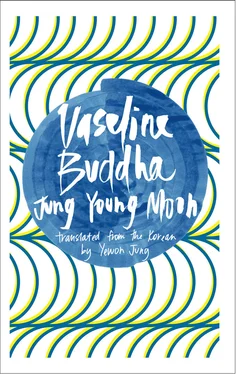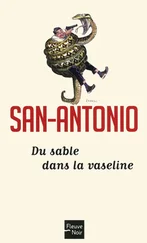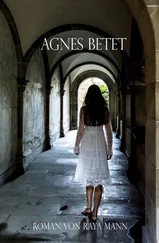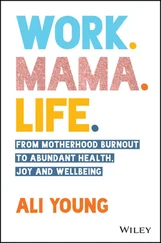Jung Young Moon - Vaseline Buddha
Здесь есть возможность читать онлайн «Jung Young Moon - Vaseline Buddha» весь текст электронной книги совершенно бесплатно (целиком полную версию без сокращений). В некоторых случаях можно слушать аудио, скачать через торрент в формате fb2 и присутствует краткое содержание. Год выпуска: 2016, Издательство: Deep Vellum Publishing, Жанр: Современная проза, на английском языке. Описание произведения, (предисловие) а так же отзывы посетителей доступны на портале библиотеки ЛибКат.
- Название:Vaseline Buddha
- Автор:
- Издательство:Deep Vellum Publishing
- Жанр:
- Год:2016
- ISBN:нет данных
- Рейтинг книги:3 / 5. Голосов: 1
-
Избранное:Добавить в избранное
- Отзывы:
-
Ваша оценка:
- 60
- 1
- 2
- 3
- 4
- 5
Vaseline Buddha: краткое содержание, описание и аннотация
Предлагаем к чтению аннотацию, описание, краткое содержание или предисловие (зависит от того, что написал сам автор книги «Vaseline Buddha»). Если вы не нашли необходимую информацию о книге — напишите в комментариях, мы постараемся отыскать её.
." — Pak Mingyu
A tragicomic odyssey told through free association scrubs the depths of the human psyche to achieve a higher level of consciousness equal to Zen meditation. The story opens when our sleepless narrator thwarts a would-be thief outside his moonlit window, then delves into his subconscious imagination to explore a variety of geographical and mental locations — real, unreal, surreal — to explore the very nature of reality.
Jung Young Moon
Vaseline Buddha — читать онлайн бесплатно полную книгу (весь текст) целиком
Ниже представлен текст книги, разбитый по страницам. Система сохранения места последней прочитанной страницы, позволяет с удобством читать онлайн бесплатно книгу «Vaseline Buddha», без необходимости каждый раз заново искать на чём Вы остановились. Поставьте закладку, и сможете в любой момент перейти на страницу, на которой закончили чтение.
Интервал:
Закладка:
I suddenly remembered how someone who often experienced crisis as I did because of diarrhea told me that he always carried around a roll of toilet paper in his bag, and had relieved himself in the woods a few times, on which occasions he broke off a branch that his hand could reach and put the toilet paper on it, and whenever he did, he felt very pleased because he felt as if he were relieving himself in his own toilet in the woods, and I thought that I could do the same in the future. Perhaps I could show, by hanging a roll of toilet paper on a branch in the forest, that someone was relieving himself in the bush below. Or a roll of toilet paper could come in handy when you go into a forest where you might get lost and want to make your way back out, and it would also be helpful in a strange city where narrow alleys are intricately intertwined like a maze. In that case, you could mark your path by tearing off the toilet paper piece by piece and throwing it on the ground. This method could be very helpful in London, England. According to an investigative report, London is the easiest place in the world to get lost in. In London, the chances of getting lost are twice as high as those in Bangkok or Beijing, which is twice as large in area as London, with one out of every ten people getting lost in London, because one out of every three Londoners give you wrong direction on purpose. In light of this report, it would probably be better not to ask for directions in London even when you’re lost. (By letting the story deviate like this, I could remain in a state like that of being lost in a story. I can’t prevent the stories that branch out of a story and deviate from doing so.) In addition, Germans are the best at finding their way, and they say that one third of all Germans have never been lost. This goes to show that Germans, who prepare for things thoroughly in advance, are an amazing people who suffer from an obsessive compulsive disorder. And they say that one out of every ten Russians ask for directions not because they’re lost, but in order to seduce the opposite sex.
Let’s come back out of the deviating path in the story and get back into the forest in the story. And through a strange process of association — even in that moment, my diarrhea was in progress, and I thought this diarrhea was a long and grueling diarrhea — I suddenly recalled the fact that when Beethoven lived in an apartment in Vienna, Austria, he kept a chamber pot under his piano, and, once, a visitor found that it wasn’t empty, and I thought, to my advantage, that it was an appropriate thought to have while having diarrhea. Perhaps Beethoven was afraid that his inspiration would vanish if he went to the bathroom while composing, and kept the chamber pot there so that his inspiration wouldn’t be cut off, even if his excrement was cut off in the chamber pot on which his buttocks were perched.
After relieving myself and spending some pleasant time on my own, I stayed with the mushroom in my hand, not knowing what to do with it, and then I remembered how once, I went into a forest with someone and saw mushrooms in great abundance, just as I did now. We picked a few edible looking mushrooms, but at that moment, an old woman appeared from somewhere and glared at us as if we were trespassing on her territory, but didn’t say anything. We weren’t sure if it was her mushroom farm, but we told her nevertheless that we were very sorry, but she remained silent, even when we asked her if we could keep the mushrooms we’d picked, and if we could eat them. She looked at us for a moment without saying anything, as if she weren’t interested in people at all, and looked deeper into the forest, in a way in which most people would have difficulty doing, as if she had forgotten how to interact with people, as if she had never learned how to interact with people in the first place, or as if she were making irrelevant remarks to evade the question. Her mind was occupied by something deep in the forest, whatever it was, and not by the mushrooms around her, and that’s where her attention was.
She went off somewhere else without telling us if she wanted us, who stole mushrooms on her mushroom farm, to become sick or die, or if she, too, had come to someone else’s mushroom farm in secret to steal mushrooms, or if she had simply been passing through at that moment, and in the end, we threw away the mushrooms which we couldn’t tell were edible or not, and I had no choice but to do the same with the mushroom I’d picked in the forest in the town I thought of as Molloy’s.
I went a little deeper into the forest and climbed a little high, clearing a path through the trees, and soon I reached a spot that could be called the peak. But the peak wasn’t very high, and it seemed that it was more like a little hill than a mountain.
I sat under a tree, leaning back against it, and looked at the scene spread out before me. It seemed to me that the scene was somewhat too open, as everything in sight is, but I didn’t care. A typical French country scene lay before me, and I stared at it as if there were something infinitely captivating about it and as if I were trying to be completely captivated by it, or as if I were endlessly resisting it so as not to be captivated by it, or as if I were trying to be at least somewhat captivated by it even though there was nothing captivating about it, as if it were all the same, or not very different, as if I were in a trance, and, at the same time, indifferent.
And with conscious effort, I used my eyes to gently return the still scene, which had spread out wider before my eyes in the meantime, no, the scene that I thought had become wider even though it was the same, and had not become wider in the meantime, to its original size, and looked it up and down. A cloud that looked like a flock of sheep was drifting in the sky — it didn’t look that way on the whole, but I tore off a part of it in order to see it that way — and I thought that there’s nothing like a cloud in the realm of nature that could transform itself so freely, and that that’s why I never tired of looking at clouds, and saw several birds flitting among the branches in front of me, and heard the sound of birds singing, which must have gone on before I got there and then ceased for a moment.
I felt that I’d stepped into a lyrical world — I thought that perhaps it was because I had come, anticipating a rendezvous with a girl, which didn’t happen, but it seemed that it wasn’t necessarily so — but in that scene of nature, which was far from a scene of ruin, I saw some sort of ruins, and then it seemed that I was in a lyrical world that couldn’t really be called lyrical, a lyrical world bereft of lyric, a lyrical world that had come to ruins, or a world that was the most lyrical because it was in ruins — is a lyrical world lyrical because there’s a harbinger that everything in it, nature and civilization all, will one day vanish and come to an end, that in the end, only ruins will remain, and only an enormous shadow of the ruins will linger? — or in some sort of ruins, in another strange lyrical world, and I was fettered to that world. And I thought that it could be because nature, which was perhaps purely blind, was spread out so languorously before my eyes. As I had such thoughts, it seemed that the scene of nature served as some kind of a background music for my thoughts, and the music sounded squeaky and disordered, like a wrong tune, which kept me from thinking properly. The music was like the sound of orchestra members tuning their instruments without the conductor present.
But the sound I wanted to hear at that moment, the sound the wind makes as it passes through a forest, caught by trees and then escaping, or the sound trees make, holding the wind for a moment and then freeing it, could not be heard. And yet the branches in the upper part of the forest were stirring slightly. I suddenly remembered how I used to go to the forest near my house when I was a boy, and climb up to the top of a tree where you couldn’t climb any higher and look at the forest where there was nothing to see besides other trees, and it seemed like a very strange experience. (My childhood before a certain period of time seemed time out of mind, like a previous existence, and it seemed that in my childhood, at least, there had been moments in which I was happy for no reason, but the fact didn’t comfort me or anything, and in the first place, I wasn’t sure if it was true or not.) The branches near the top to which I had climbed were shaking, and I had to hold them tight so as not to fall. But being at the top of a tree as if keeping watch, though there was nothing there that had to be kept under watch, excited me in a strange way. There were owls living in the forest, and sometimes I saw, from the top of a tree, an owl sitting at the top of another tree. Was the reason why I climbed to the top of a tree because I liked the idea that it wouldn’t occur to people, and perhaps to owls, as well, that there could be a child on the top of a tree, where things like owls should be? Or was it because I seriously entertained, as children do, the fantastic idea that if I were to be born again, I wanted to be born as something with wings, not as a human who had to live with his feet on the ground, and to do so, I had to become friends with owls that lived in the sky? In any case, looking at owls from the top of a tree in a forest where owls lived, I imagined that we were staring at each other without moving, and felt safe, and protected although I didn’t know from and by what, and whenever the persistent boredom and anxiety and loneliness of childhood visited me, I hid myself in the air. (It’s different every time, of course, but as I write this, my swimming in a river where swallows swooped down and soared up, brushing against the water, and jumping from a branch hanging over a river, and being at the top of a tree in a forest where owls lived as if I weren’t there seem like certain clues or signs necessary in looking into and understanding my childhood, but they also seem like vignettes that don’t require interpretation, and were sufficient as they were. Still, the origin of some of my thoughts, perhaps, and of the ways in which I feel about some things, or at least some of them, could be traced back to my act of hiding in a forest of owls, quietly staring at something or not staring at anything. But how insufficient and ambiguous is it to trace the origin of something in this way? Anyway, when I was a boy, I used to feel an urge to go down into the ground, as well as to go up to the territory of owls, and when I actually saw a pit dug by an animal, I would imagine going down into it and disappearing. Was this, too, something that provided a clue as to what I have become since then? Was I already very tired then of living on earth? Or did I want to go hide somewhere, as if I predicted the days to come? No, it was a very natural thing for a child, a very normal way for a child to create his own space and stay there.)
Читать дальшеИнтервал:
Закладка:
Похожие книги на «Vaseline Buddha»
Представляем Вашему вниманию похожие книги на «Vaseline Buddha» списком для выбора. Мы отобрали схожую по названию и смыслу литературу в надежде предоставить читателям больше вариантов отыскать новые, интересные, ещё непрочитанные произведения.
Обсуждение, отзывы о книге «Vaseline Buddha» и просто собственные мнения читателей. Оставьте ваши комментарии, напишите, что Вы думаете о произведении, его смысле или главных героях. Укажите что конкретно понравилось, а что нет, и почему Вы так считаете.












